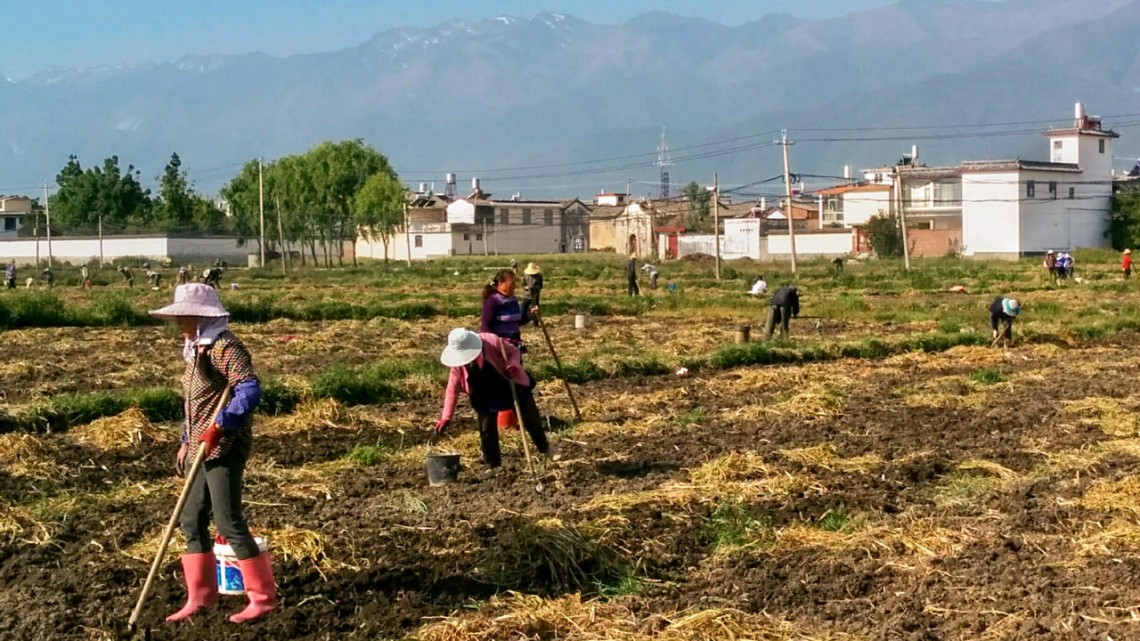
Villagers near the city of Dali, in the Yunnan Province of China, have lost access to their agricultural land and work as day laborers as they await urban resettlement.
China’s green plan displaces villagers, forces inequity
By Blaine Friedlander
As China creates more green space around its giant cities, the country’s modernization plan – which includes relocating 250 million rural villagers into urban centers by 2025 – appears to have a dark side: socioeconomic inequity.
While many studies have lauded China’s new environmental goals, much of this research has focused on the technical ways to make urban infrastructure sustainable and reduce emissions.
However, new research suggests a relationship between urbanism and social inequity. There are no national standards for land valuation and compensation for the displaced villagers whose property was seized for conservation purposes, said Jesse Rodenbiker, a postdoctoral research fellow at the Cornell Atkinson Center for Sustainability and in the College of Agriculture and Life Sciences’ Department of Natural Resources.
“China’s municipal governments are creating environmental conservation areas, which are forcing villagers around these cities – some of whom have been farming on family plots for centuries – to stop farming and migrate into crowded, high-rise resettlement complexes with little compensation. It has significant socioeconomic effects,” Rodenbiker said.
Rodenbiker’s research, “Urban Ecological Enclosures: Conservation Planning, Peri-urban Displacement and Local State Formations in China,” was published this summer in the International Journal of Urban and Regional Research. This work is part of his ongoing research on green urbanization and social inequality.
The scale of villagers forced into urban relocation is significant. China has more than 15 cities with populations between 9 million and 28 million. The plan, he said, aims to increase the total urban population to 60%, then to 70% by 2035.
The displaced population numbers will go much higher, he said, as China’s government calls for urbanizing another 10% of dwellers around cities in the next five years. “We can see millions of more people forced into urban life over the next five years,” he said.
Rodenbiker said future research on conservation and sustainability practices in China must account for local, political economic forces and how sustainability projects impact livelihoods. This entails researching sustainability from both the governmental perspective and from those people who are most affected.
To ensure equitable compensation, he said, stronger rural land rights are needed.
“Without substantial policy changes,” Rodenbiker said, “those forced into ecological migration will continue to experience a range of different tracks with substantial socioeconomic pressures on poorly compensated and newly landless migrants.”
The Cornell Postdoctoral Fellowships in Sustainability and the new Atkinson-Environmental Defense Fund (EDF) Postdoctoral Fellowships stimulate original cross-disciplinary research and the development of sustainable solutions.
Media Contact
Get Cornell news delivered right to your inbox.
Subscribe
